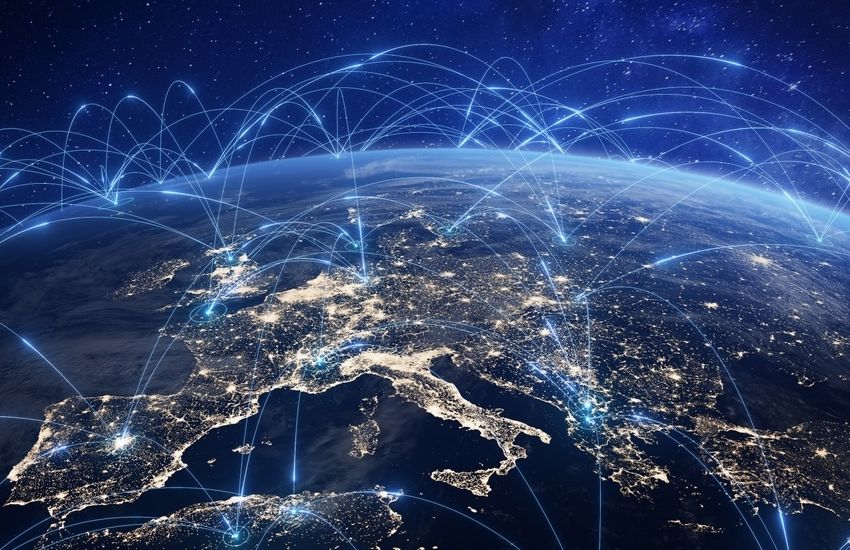


It came down to one very simple statement: global problems do not just pass Guernsey by.
And with that the Big Debate was won, and my mind drifted off to contemplate why people were moaning that the States should do more about weeds on pavements instead of just removing the damned things themselves.
Or it would have done if the gavel hadn’t hammered the table, knocked me out of my smug serenity, and the next side of the argument set out another compelling case.
It was the Ladies’ College annual Big Debate.
The motion?
“This house believes that on a small island like Guernsey, global issues are more important than local ones.”
What unfolded were challenging, nuanced, respectful, calm, well-crafted arguments and flexible thinking, the art of debate as it should be.
Tom Fletcher, Principal of Hertford College, the University of Oxford, and former British Ambassador to Lebanon and foreign policy advisor to Number 10, proposed the motion alongside lower-sixth student, Eva Redelinghuys. Sir Richard Collas, retired Bailiff of Guernsey and former Governor of The Ladies’ College, opposed with upper-sixth student, Abigail Power.
It all stood in stark contrast to my usual experience covering a States chamber where point scoring over perceived rivals matters more than reaching the best decision, especially now we are entrenched in the final throes of this election cycle and some members can barely disguise their animosity to others.
But enough of what lessons our politicians could learn from how it was conducted, back to some exploration of the question the speakers grappled with.
This, for what it's worth, is my reaction to it all, with a big credit to the speakers for picking out many of these issues.
You only have to look at the pandemic to see how global issues have an impact that can vastly outweigh local issues like how much you pay for dog tax or whether there is too much vegetation on the cliffs.
There will be another pandemic, just as there will be another financial crash, and Guernsey preparedness for them and ability to react to them matters to the lives of islanders.
Climate change will inevitably impact how we live as weather patterns change and become more extreme.
The technological revolution that is being driven by advances in AI will change how we work, what jobs we do.
So ask yourself is it better to look inward or outward?
Ultimately, it is not a binary choice but one of degrees.
Government is always a balance of priorities and for an island like Guernsey, so rarely at the forefront of global developments, about the ability to set the right conditions to pivot and adapt to seek out opportunity.
In advancing the case for local issues being more important than global ones, you inevitably stray into showing how the opposite is true.
The island has a rich history of making the most of its two unique qualities, its geography and its people.
In the past it was our geography that mattered most.
It is why trade and privateering could flourish as we nestled in between France and England with good natural harbours, our climate allowed flower and tomato growing to outperform others, the quality of the granite beneath our feet made billions of years ago made it an export commodity,
But over time these geographical advantages have been blunted.
Now it is about our people, our skill sets, our ability to offer financial services that others cannot match. It is knowledge.
But that only plays out by finding opportunities offered by the national and international picture.
We can bask in our unique constitutional position as a Crown dependency all we want, but we always have to meet and if we can take advantage of national and international standards, that is what ultimately drives major decision making.
From the food we eat, to the cars we drive, to taxes we pay, to how we travel and the type of homes we live in, who can work here, to the type of dog you can own and healthcare you access, everything fits into a global picture.
That is why our success does not lie in politicians that bicker and run around in circles over car parking, how long the runway should be or whether to have a GST.
Those should be run of the mill decisions that are made, assessed and adapted, not the permanent purgatory that they have become.
But supporting a broadly internationalist approach is difficult.
We are all more connected than ever before, yet through that has grown an ability to rapidly sow division, to create enemies out of phantoms, to encourage people to think in black and white, absolutist terms with no room for nuance and even less for reflection and reevaluation.
That propagates in Guernsey just as it does anywhere.
For many who shout the loudest right now it is simply easier to be isolationist, to build walls, to stoke fear.
There is so much work to do to turn that tide and to effectively adapt the global institutions that are the only way that global issues can be dealt with.
We live in a world where a Google search or a click on social media will easily find you a narrative to support any viewpoint, where it is more engaging to believe in a conspiracy and so they can propagate and thrive whatever the underlying logic.
People want to out expert the expert in a few words, whatever the validity of an argument and whatever the topic, living for permanent gotcha moments.
In the end, both sides could claim they won the debate. The argument for local issues being more important persuaded more people to change their minds, those espoused for global still held a majority by the end.
What mattered, though, was that our thinking about Guernsey’s place in the world was challenged.